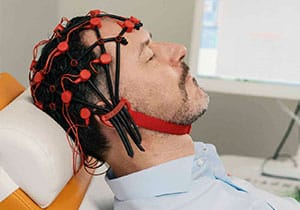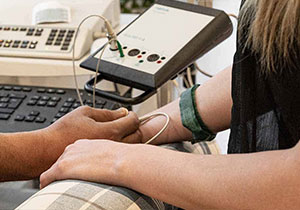
Obsessive-compulsive disorder
Obsessive-compulsive disorder (OCD) is a disorder that belongs to the category of mental disorders. It is characterized by repetitive unpleasant thoughts or ruminations, impulses and/or recurring compulsive actions that last for at least two weeks on most days.
Symptoms of obsessive-compulsive disorder
Obsessive thoughts and compulsive actions are recognized as products of one’s own mind and are not considered to have been inspired by people or external influences:
- They occur repeatedly.
- They are experienced as unpleasant.
- At least one obsessive thought or action is recognized as excessive or inappropriate.
- However, at least one obsessive thought or action cannot be successfully suppressed.
- Performing the compulsive action only leads to a brief relief and a release of physical tension.
These symptoms and complaints may indicate obsessive-compulsive disorder:
- Obsessive thoughts (thoughts, ideas or images):
Perceived danger of contamination, infection, poisoning, illness, striving for symmetry or order, etc. - Compulsive actions (action patterns):
Constantly repeating behaviors and patterns promise relief to those affected. These include washing, cleaning and tidying compulsions, control and order compulsions.
An untreated obsessive-compulsive disorder can have a severe impact on the psyche. There is a high risk of addiction to alcohol and medication, loss of control and depression — always associated with a high level of suffering and social withdrawal.




